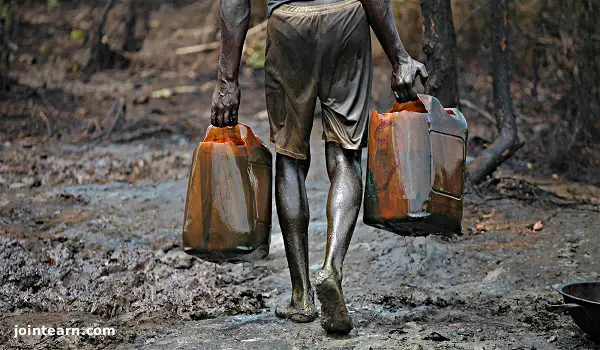
Nigeria is losing an estimated $15 billion annually to oil theft and pipeline vandalism, according to a new study by Professor Usman Muhammed of Kaduna State University. The findings have sparked renewed concern over the sustainability of President Bola Ahmed Tinubu’s Renewed Hope Agenda beyond 2027.
Speaking at the 1st Citizens Engagement Conference (North-West Edition) in Kaduna, themed “The Positive Impact of Oil and Gas Reforms by President Ahmed Bola Tinubu,” Prof. Muhammed said the country’s oil and gas sector — its main economic pillar — continues to underperform due to poor governance, policy inconsistency, and decaying infrastructure.
“Despite holding 37 billion barrels of crude oil and 209 trillion cubic feet of gas reserves, Nigeria struggles with declining productivity and weak institutional accountability,” he said.
Production below potential
Between 2019 and 2024, Nigeria’s crude oil output averaged between 1.4 and 1.67 million barrels per day, below its OPEC quota of 1.8 million bpd, while inflation and unemployment rates climbed to 22% and 33%, respectively, according to the report.
Prof. Muhammed acknowledged that while the Petroleum Industry Act (PIA) 2021 established new regulatory frameworks — including the Nigerian Upstream Petroleum Regulatory Commission (NUPRC) and the Nigerian Midstream and Downstream Petroleum Regulatory Authority (NMDPRA) — weak enforcement has slowed progress.
“The PIA and the commercialization of NNPC are yielding modest results, but production efficiency and local content development remain moderate,” he said.
Weak regulation, strong losses
The study revealed a strong correlation (r = 0.74) between oil production and GDP growth, showing that higher output could significantly boost national income. Regulatory quality and investment inflows account for over 81% of GDP performance in the sector.
Comparative data placed Nigeria far behind its peers in regulatory efficiency — scoring 63 out of 100, compared to Norway’s 92 and the United States’ 90. Experts at the event attributed this gap to poor coordination, outdated technology, and persistent corruption.
“The twin problems of oil theft and pipeline vandalism have continued to undermine growth,” Muhammed warned. “Without decisive measures, Nigeria risks losing the transformative gains envisioned under the Renewed Hope Agenda.”
Calls for reform and private participation
The report recommended digital monitoring of oil production, pipeline rehabilitation with anti-theft technology, and greater investment in research, gas-based industrial hubs, and local content development.
Co-convener of the conference, Mallam Nasir AbdulQuadri, urged the federal government to allow private investors to operate refineries, with government focusing solely on regulation.
“When we talk about reform in the oil sector, it means government must take its hands off business,” AbdulQuadri said. “Public refineries have failed for decades, but one man’s vision gave us the 650,000-barrels-per-day Dangote Refinery — proof that private ownership works.”
He added that deregulation is already delivering results, noting that subsidy removal has made the system “open and transparent.”
“When we deregulate, we kill corruption. The subsidy era enriched a few at the expense of millions,” he said.
AbdulQuadri described the conference as a platform to bridge the information gap between citizens and government, urging Nigerians to unite in support of the reform agenda.
“In this country, we don’t have Hausa, Igbo, or Yoruba — only good and bad people. Good Nigerians must unite against those using tribe and religion to divide us,” he added.
Industry experts, regulators, and civil society participants at the conference agreed that only policy stability, transparency, and private-sector participation can unlock the full potential of Nigeria’s oil and gas sector.
Prof. Muhammed concluded that sustainable growth beyond 2027 will depend not just on oil output but on institutionalized regulation, economic diversification, and public accountability.


Leave a Reply